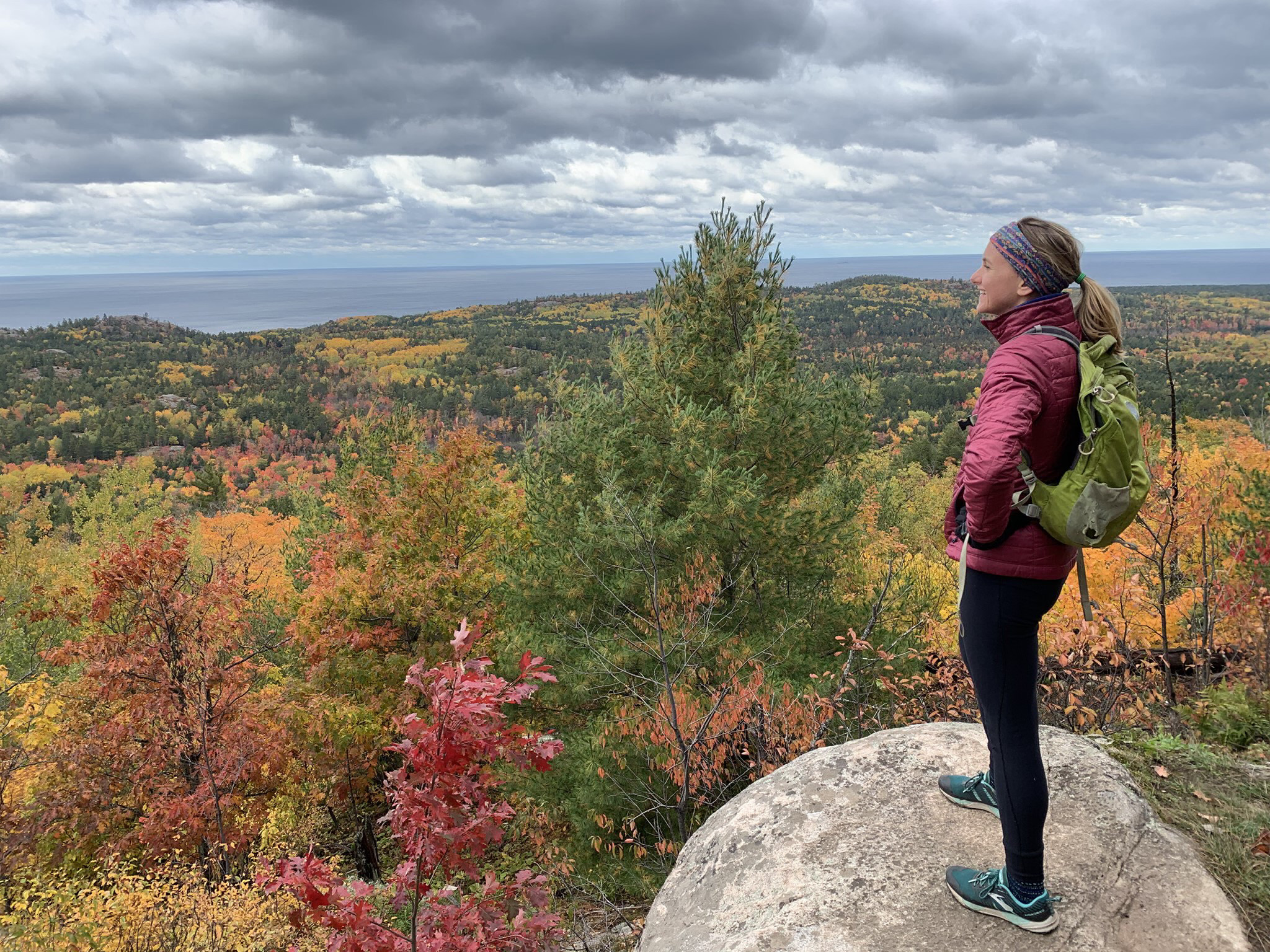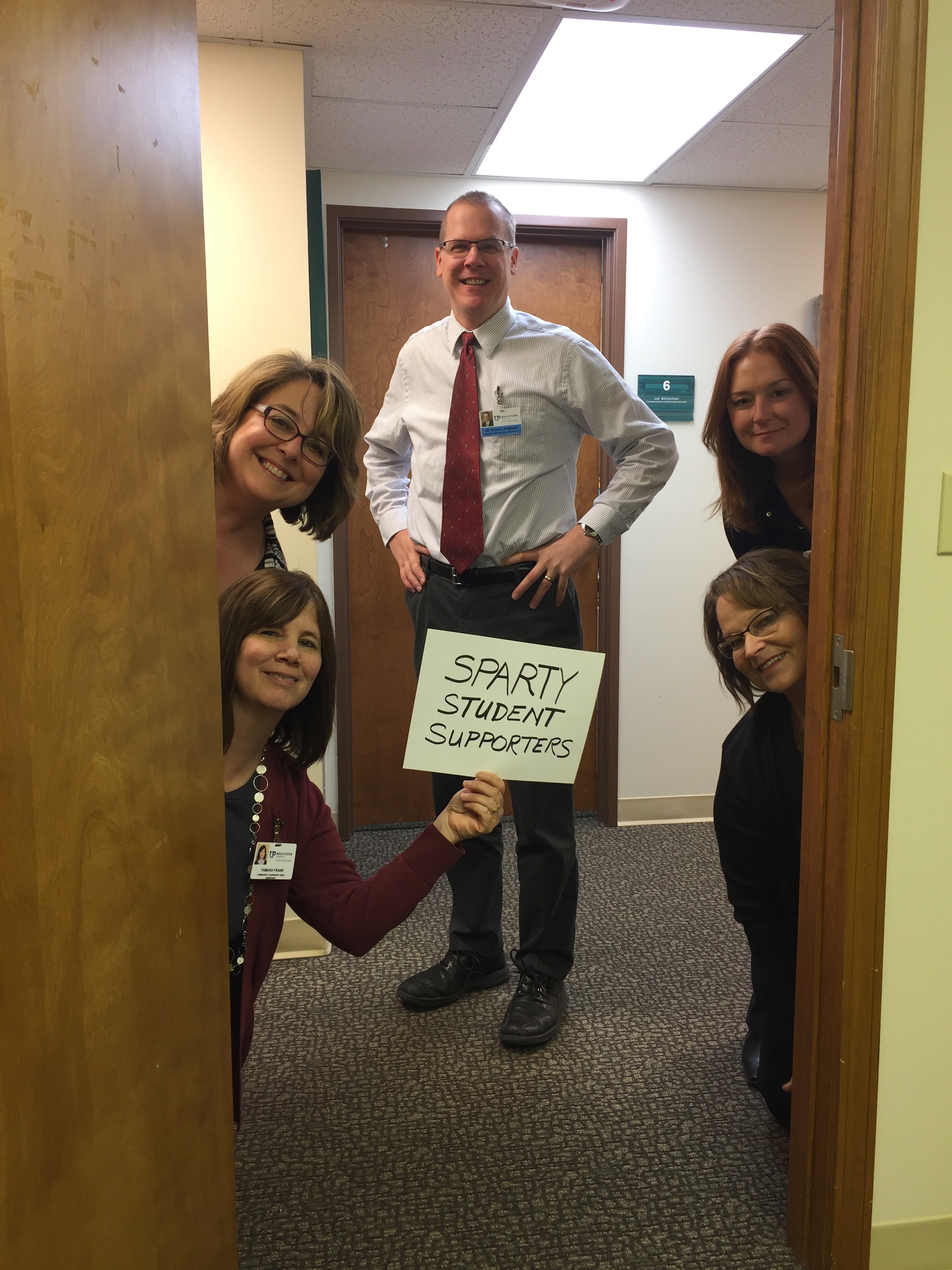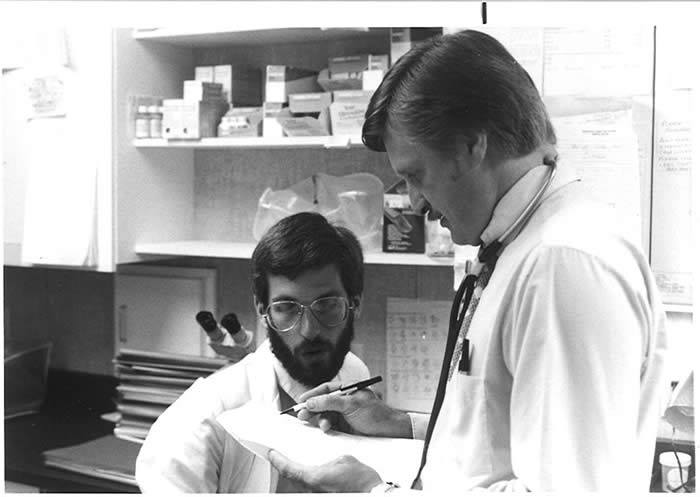Our History
MSU-CHM’s Upper Peninsula (UP) campus began as an idea in 1971. Associate Dean W. Donald Weston, with the support of other medical academics, theorized that medical education could exist outside the walls of large teaching hospitals and become an integral part of the health care system in a region experiencing a physician shortage.
Weston’s idea was controversial. At a June 1973 UP Medical Society meeting, several physicians raised concerns that a medical education received in the rural UP would be inferior. Nonetheless, the meeting drew a vote of support for the effort. There simply were not enough physicians in the UP, and Weston’s concept offered potential relief.
In 1974, the Upper Peninsula Health Education Corporation (UPHEC) was formed to work with MSU-CHM to cooperatively run the UP campus. UPHEC sought a community where family physicians could serve as active role models for students and wanted an Upper Peninsula-wide program, not owned by any one city. Escanaba-based family physicians Dr. Ray Hockstad and Dr. Donald Fitch were particularly enthusiastic and supported by a handful of local specialists. As a result, St. Francis Hospital in Escanaba was chosen as the first teaching site. Marquette, the UP’s largest city, was home to health planning agencies and Marquette General, a developing referral hub. Marquette was thus selected as the program’s administrative base.

The first class of 10 students was accepted in March of 1974. They began fall courses with their classmates in East Lansing then moved to Escanaba in January of 1975. This first term gave the students a sense of identity with the larger university and was so successful that subsequent students in the UP program spent their first 12 weeks on the main campus then relocated to the Upper Peninsula for the remainder of their medical education.
At the 1978 graduation ceremony for the first UP program class, Dean Andrew Hunt said, “I think probably the most interesting, the most creative, the most imaginative and very likely the most important thing that has happened during my tenure was the creation, the thinking through and the implementation of this program in the Upper Peninsula. I don’t think you really have an idea of the impact it’s having nationally.”
Around the same time, a transformation was taking place in the Marquette medical community. New specialists were attracted to the area by its unique lifestyle and practice opportunities. These physicians were trained at state-of-the-art university medical centers and were interested in sharing their acquired knowledge through teaching. Marquette General grew tremendously as a regional hospital, and the Marquette Family Medicine Residency Program, affiliated with MSU-CHM, graduated its first class in 1982. By the mid-1980s, years one and two of the UP program had reverted back to the East Lansing campus to assure a strong basic science education and years three and four were taking place in Marquette.
The name Rural Physician Program (RPP) was created in 1996 and in 2010 UPHEC was renamed the MSU-CHM UP Region Campus. These names more clearly linked the program’s rural mission, the MSU-CHM campus, and the Upper Peninsula region. In 1990, practice location and specialty choice outcomes for early graduates of the program were published, showing a tendency for rural practice and primary care specialties. In 2016, the current RPP curriculum and outcome data describing the first 30 years of program graduates was published, again showing a tendency for rural practice and primary care, and illustrating the significant impact the program has had on the rural physician workforce of the Upper Peninsula of Michigan.

Based on the success of the UP small-campus model, as well as still unmet needs in other regions of the state, MSU-CHM developed two other small regional campuses: the Traverse City campus in 2009 and the Midland Regional Campus in 2010. These campuses have successfully worked with physician educators to provide medical students with robust, community-based, clinical education experiences throughout the Northern and Mid-Michigan regions of the state.
In 2013, MSU-CHM developed the Rural Community Health Program (R-CHP) to augment the rural training opportunities available on the Traverse City and Midland Regional campuses. Students involved in the R-CHP program complete an enhanced curriculum that emphasizes procedural training, public health, leadership, and community integration while receiving clinical training on their main campus as well as within a rural educational site. The goal of the R-CHP program is to provide training for students interested in rural medicine--not only to become exemplary rural physicians but also to become physician leaders within a rural community.
Michigan State University College of Human Medicine has been training medical students and residents in rural communities for more than 50 years.
1969: Midland Family Medicine Residency Program
1979: Marquette Family Medicine Residency Program
1995: Traverse City Family Medicine Residency Program
2016: Alma Family Medicine Residency Program
2019: Marquette Psychiatry Rural Training Track
2020: Traverse City Psychiatry Rural Training Track
2021: Alpena Family Medicine Rural Training Track
2023: Petoskey Family Medicine Residency Rural Training Track
2025: Little Traverse Bay Bands of Odawa Indians Tribal Health Family Medicine Rural Training Track


